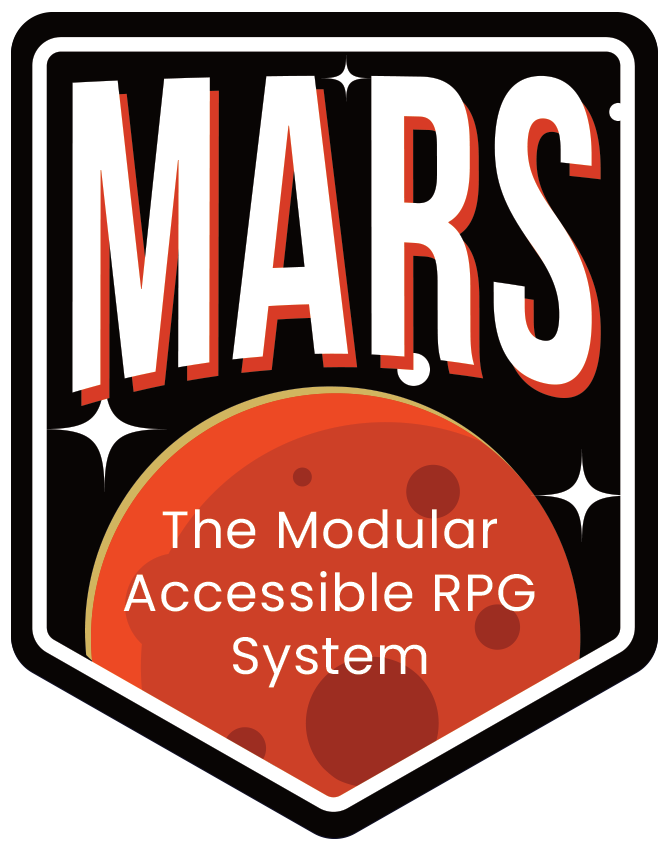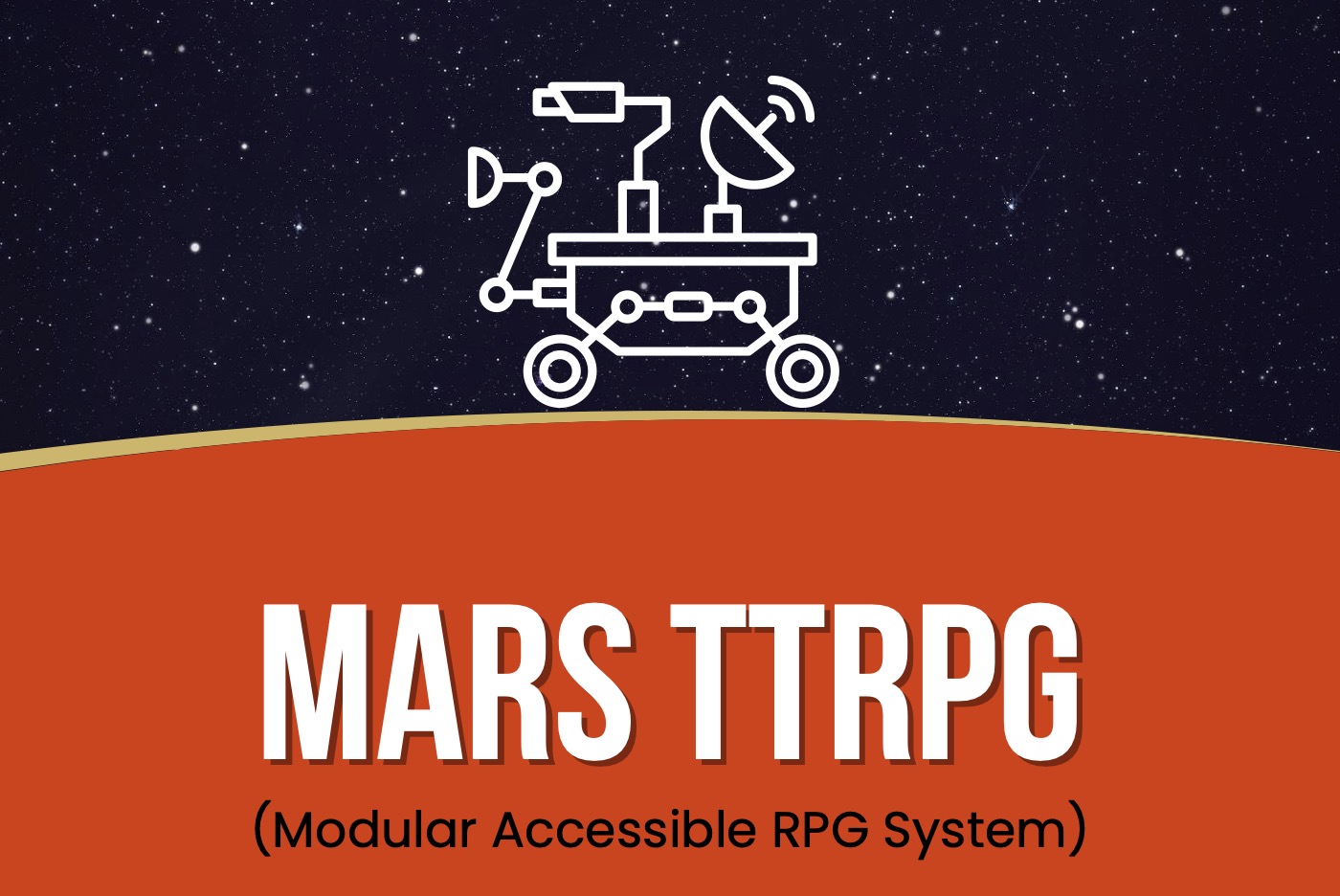Introduction
Special Items extend upon the concept of Items and the Abilities Module to essentially allow Special Abilities to be granted to an Item.
Note: Any Item can already be used to a) Make a creative Action more believable (e.g. I use this 40ft rope to help me cross this chasm, or I use this lamp to light my way in the dark), and b) grant an Advantage dice to an Action roll. It only becomes a Special Item when new mechanics or additional bonuses are attached to an Item.
Note: Consider that using this Module immediately introduces 3 significant changes to gameplay, and as such will significantly impact the flavour of your game:
- Technically a Character can now have more than 3 Special Abilities because their Special Items can carry them also.
- Using an actual Weapon (e.g. a sword) during a physical Conflict can now provide a greater bonus than using an improvised weapon (e.g. a biro pen). Under MARS Core Rules all items leveraged in a Creative Action offer the same level of Advantage.
- Collecting rare and powerful items that give bonuses in certain situations can become a part of your game. And is likely to become a large focus of your game and it’s best rewards.
Note: Special Items are great for more advanced Players, but may add too much complexity for beginners.
Item Library
A Setting or Campaign Guide may define a list of Items Players can choose to take, or GMs can choose to include, or they can make up their own, with GM guidance.
Items should be specified with a Name, Ability (Name, Detail, Threshold), and any limitations associated with this item (e.g. Can only be wielded by characters with PQ at 2nd Level or higher).
Passive Abilities on Items
Most Special Item Abilities are considered Active Abilities because you must choose to trigger them by involving the item in a creative Action or on your Turn during a Conflict or Competition.
Because Special Items can introduce new mechanics this opens the door to attach Passive Abilities to items. These Abilities trigger automatically in response to other Players, NPCs or changes in the environment. Passive Abilities are especially useful in Conflict because they can trigger and deal Stress outside your Turn.
Limitations
Be aware that introducing Special Items will shift the focus of the game away from levelling up your Character, and put a high focus on getting better and better cool items over time.
Limitations provide an important way to limit the potential power creep and imbalances that Special Items can introduce.
Your Setting and/or GM will control how common or rare Special Items are in your world. For example, in some games Special Items will be very rare rewards. Whereas in other game types, Special Items could be everywhere for more of an Action RPG style loot-grind type mechanic.
Just like Special Abilities, limitations should also be placed on the Special Items’ Abilities themselves.
Remember the more powerful a Special Item’s Ability, the more it needs to be balanced with limitations. Consider specifying how long the ability lasts and how often it can be used, who it can / can’t be used by, etc.
Weapons
If your Setting includes physical Conflict (i.e. Combat), then a common use of Special Items is to allow Characters to wield weapons that are Special Items which carry Conflict bonuses.
Typical bonuses are:
- +X to Impact Rolls [PQ]
- e.g. Add +3 to the number you rolled when rolling for Impact / Stress dealt.
- Plus to Impact is a good bonus for weapons, it just makes sense. E.g. It’s a sword, if you hit with it, it’s going to do damage, so you shouldn’t be able to roll a 1 for Stress.
- +Y to Threshold Rolls [PQ]
- e.g. +1 to the number you rolled when rolling against a Threshold (to see if you Succeed or Hit).
- Be careful granting this bonus as it stacks quickly when multiple Advantage dice are in play.
- Plus to Threshold Rolls only makes sense if you believe the nature of this weapon means it’s more likely to hit. E.g. A finely crafted bow might be a good fit for a plus to Hit bonus, whereas a finely crafted mace is less likely to significantly change the wielder’s ability to Hit their target.
Feel free to get funky with other Special Abilities and effects added to weapons, however we recommend not granting additional Advantage dice as that reduces the incentive to creatively tap Backstory or collaboration for Advantage.
Upgrade an item
Find the right craftsperson, scientist or magic-wielder in-game and they may be able to imbue one of your favourite items with Special Item bonuses, for a price, or as a reward. They may also be able to upgrade the bonuses or abilities on an existing Special Item. No mechanic is specified for how this might work, it will be at your GM’s discretion.
Example Special Items
Items
- Necklace of Protection: Once each day this necklace reduces Stress of any type taken by 1d20.
- Comms bracelets: This pair of bracelets recharge in the sun, so once each day the wearers can send a short message to and then from the other person.
- Shoes of infinite speed: This pair of boots grants you an additional 30 feet of total movement each Round (movement can only be used 30 feet per Action) [Physical].
- Light as this feather: Something about this feather is terrifying. Waving it at a creature will cause them to go stiff as a board for 6 seconds. Cannot be used on other PCs during Turn-Based Competitions [Emotional].
Weapons
- Sword: +2 to Impact Rolls. [Physical]
- Crossbow: +1 to Threshold Rolls. [Physical]
- Great sword: +4 to Impact Rolls. Requires PQ of Level 3 or above. Any Stress over and above the Target’s remaining RP is carried over to other enemies NEARBY. [Physical]
Now go play!
You can run games now that involve extra special Items that grant bonuses and new fun mechanics. If you’d like to introduce Conflict mechanics (AKA Combat), read on with the Conflict Mode.

